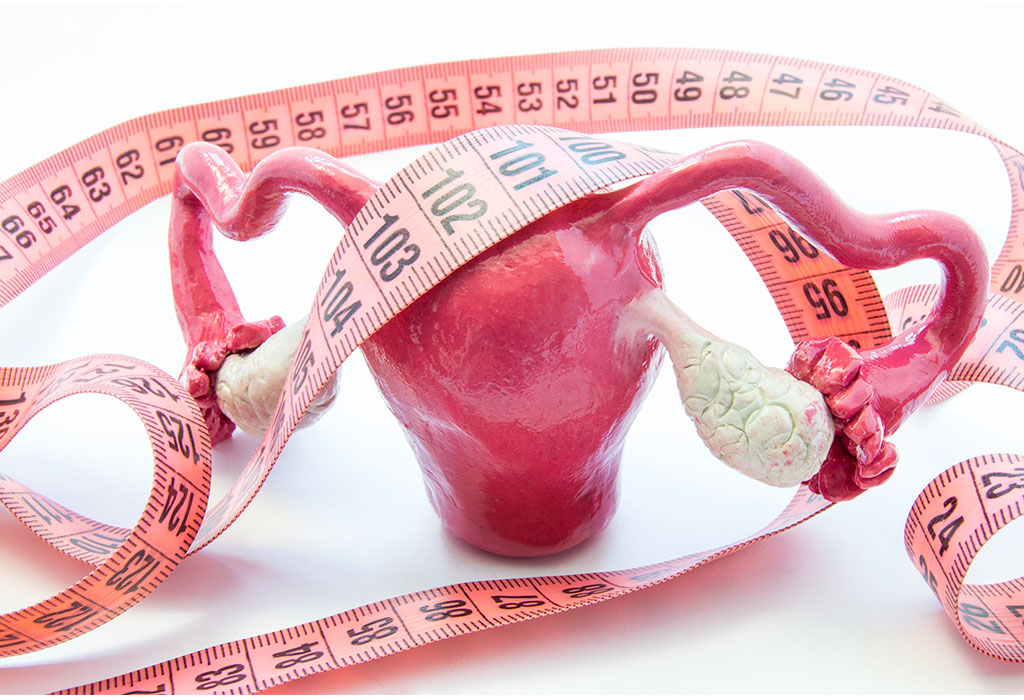Your reproductive system consists of ovaries that produce estrogen and progesterone hormones. They produce the eggs and release them when they get matured. The ovaries tend to enlarge or get swollen. There are many reasons behind the swelling and enlargement of the ovaries. Some of the causes are not harmful to your body. One reason is that during your menstrual cycle, the eggs get matured and are ready to be released. At this time the ovaries get swollen. Another cause of this is the formation of cysts in the ovaries. Cysts are sacs filled with fluid.
If your ovaries enlarge at a later stage in life then there are chances of ovarian cancer. This is a serious condition but is rare. Though it is rare, you should see a doctor and get it checked to understand what causes the enlargement of the ovaries.
Here is a list of causes, their symptoms, what treatment you should opt for and when you need to see a doctor.
Ovulation
Ovulation is a phase in your menstrual cycle. It is the 14th day of your cycle during which the ovary releases the mature egg. Before ovulation, your ovaries will get swollen as the egg has grown and is prepared to be released.
The most common signs of ovulation are:
- Increase in vaginal discharge or change in it
- Slight rise in your body temperature
- Experience some cramping
What can you do?
The enlargement of the ovary is normal in your menstrual cycle. You cannot do anything about it. As soon as the egg gets released, the swelling will reduce.
Ovarian Cyst
Ovarian Cysts are the sacs that are filled with fluid and are formed in the ovaries. They are very common. If you have large cysts or a lot of them then it can cause the ovary to swell.
There are three types of ovarian cysts:
Corpus luteum cyst
When the egg is released the follicles will tend to dissolve. But in some cases, they do not dissolve and the opening of the follicle does not close up completely. This causes the fluid to build up in the sac. This forms the corpus luteum cyst.
Dermoid cyst
A dermoid cyst has tissues that are found in the different parts of the body like hair follicles, oil glands, or sweat glands. These tissues release their substance in the ovary which causes it to swell up. As the dermoid cyst grows, the skin, sweat glands, and other tissues get trapped inside the skin. This is similar to an embryo that is in the development stage.
These cysts do not have any symptoms and usually do not cause any harm. They are detected in the imaging scan or while performing some surgery.
Follicular cyst
A follicular cyst is formed when the follicle does not release an egg during the ovulation phase of the menstrual cycle. This egg grows further and turns into a cyst. They do not have any symptoms and disappear on their own.
What can you do?
A majority of ovarian cysts do not cause harm to your body. They usually go away within a few months without the need for any treatment. If the size of the cysts is large and causes symptoms like feeling bloated, experiencing pain or they burst then you need a surgery to remove them. To prevent future formation of ovarian cysts, your doctor may prescribe you to take birth control pills.
Ovarian torsion
Ovarian torsion arises when your ovary and a section of fallopian tube twists around. This usually happens because of a cyst or some other growth in the ovary. Women’s ovaries are more flexible than an average ovary that is why they tend to twist. Ovarian torsion usually affects a woman during the reproductive years.
The symptoms of ovarian torsion are:
- Experience pain in the lower belly and the pelvis. It is continuous or occur in intervals.
- Feeling of nausea
- Vomiting
What can you do?
Ovarian torsion is considered to be a medical emergency as there are chances that your blood flow can cut-off because of the twisting. This causes the tissues to die and infects the ovary. If you have this condition then you immediately need a surgery to either untwist the ovary or remove the ovary along with the fallopian tube.
Endometrioma
Endometrioma is another type of ovarian cyst that is formed from endometrial tissue that lines the uterus. This causes endometriosis in women. In this condition, endometrial tissue implants in various parts of the pelvis.
The uterus lining tissues tend to swell up every month and they shed during your period. When this tissue is in your ovaries, it does not have a place to shed so the ovaries swell up.
According to the Endometriosis Foundation of America, 20% to 40% of women who have endometriosis develop endometriomas.
The symptoms of endometriosis and endometriomas are:
- experience pain during periods
- heavy bleeding during periods or between periods
- abdominal pain
- experience pain during sex
- pain during a bowel movement or when you urinate
You should be careful because if you do not get it treated then it can damage your ovaries to a point where you cannot get pregnant. This can also increase your risk of having ovarian cancer. If you experience any of the above symptoms then you should see the doctor immediately.
What can you do?
One option is to get a surgery done for removing the endometrioma. Another option is to remove your whole ovary. This is usually not done in women who are in their reproductive years as that will affect their fertility.
Polycystic ovary syndrome (PCOS)
Polycystic ovary syndrome (PCOS) is a condition where women have high levels of male hormones known as androgens. These hormones in excess can cause the formation of cysts in your ovaries and swells them.
The symptoms of PCOS will begin during puberty. These include:
- heavy periods
- fewer periods than usual
- obesity
- fatigue
- pain in pelvic
- excessive growth of body and facial hair
- acne
- mood swings
- hair thinning
- difficulty in conceiving
- trouble in sleeping
What can you do?
There are treatments for controlling the symptoms of PCOS but there is no cure for this condition.
You doctor may prescribe the following:
- birth control pills that contain estrogen and progestin hormones to regulate your menstrual cycle
- drugs like Clomid, Femara or gonadotropins to help you ovulate and conceive
- Aldactone, Vaniqa or birth control pills to reduce hair growth.
If you are suffering from obesity then you should lose 5% – 10% of your weight to make your periods regular and to ovulate. You should consult a doctor about your ideal weight and how to achieve it through your diet and fitness routine.
Noncancerous tumor
There are a few tumors that grow inside your ovary. They are noncancerous and never spread beyond your ovary.
Fibromas are a type of ovarian tumor that is made from connective tissues and usually grows slowly. Most of these tumors do not cause symptoms but if you do then these symptoms are:
- pain in the pelvis
- heaviness or pressure on your abdomen
- pain during sex
- fever
- nausea and vomiting
What can you do?
Small tumors may go away with time and you will not require treatment. Your doctor will perform an ultrasound or take imaging scans to see if it has subsided. If there are large tumors then you will need surgery to remove it.
Does it indicate cancer?
The first sign of ovarian cancer is the swelling up of your ovaries. But that is very rare. You will not see symptoms unless it spreads.
The symptoms of last stage ovarian cancer are:
- pain in lower belly or pelvis
- feeling full after you have eaten
- swollen belly
- abnormal discharge or bleeding from the vagina
- pain during sex
- changes in your period cycle
- fatigue
- nausea
- swelling in your legs
What can you do?
The treatment will vary depending on the type and the stage of ovarian cancer. The options of treatment are:
- Surgery: During this, the doctor removes as much tumor as possible. You can treat some of the tumors with bilateral salpingo-oophorectomy where both the fallopian tube and the ovaries are removed. Depending on the place where the cancer has spread, you might require a hysterectomy to remove your uterus.
- Chemotherapy: In this treatment, drugs are used to kill the cancer cells of your body. You get this treatment after the surgery to kill the cells that were left behind.
- Hormone therapy: In this, the hormones that ovarian cancer requires to grow are blocked or lowered down.
- Targeted therapy: This treatment targets the blood cells that help the ovarian cancer to grow.
When you should see a doctor
Enlarged ovaries are not of concern unless your symptoms do not subside. In such a scenario, you should see your doctor and get it checked.
If you experience any of the below symptoms then see a doctor immediately:
- abdominal pain and feeling full
- pain during sex
- heavy bleeding during your period
- skipped periods
- abnormal vaginal discharge





